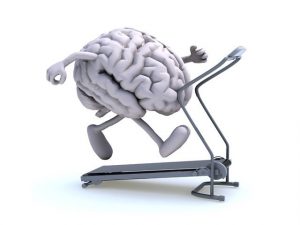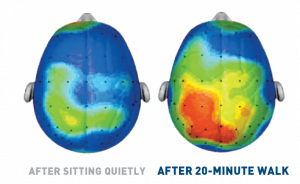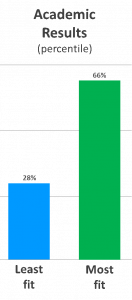Research over the past 10+ years has shown the significant importance of physical activity in developing the brain, and as a result the strong link between physical fitness and academic results.
Get Active is a program of 2 or 3 workshops, delivered by an Olympic/GB athlete, designed to help a whole school understand how small changes can have a big impact on academic results, pupil behaviour and mental health.
It’s remarkably simple.
"All teachers should know about this!"
Summary
- 30 minute diagnostic call with Head teacher and appointed “Get Active Champion”
- Appointment of a “Get Active Champion”
- 3 workshops lead by an Olympic/GB athlete spread over 6-12 weeks
- Objectives:
- (1) to support a teaching body dramatically to increase physical activity in the school, in order to
- (2) improve general health and well-being
- (3) to improve academic results
- The grounding for the approach is based on work by Professor John J Ratey (author of “Spark!”, and “Go Wild”).
Diagnostic Call: Facts and issues
Prior to the first workshop, the school will need to appoint a “Get Active Champion”. This person will need to:
- Be a full time member of staff

- Be familiar with the contents of Prof. John Ratey’s book, “Spark!” (also available on audio)
- Be passionate about the positive impact of physical activity on children
- Have lots of energy to carry such a program through against potential institutional inertia within the school
- Have the full support of the head teacher
- Carry out 2 hours of pre-workshop preparation work, in addition to a 30 minute phone call with the Get Active facilitator in advance of the first workshop
The diagnostic phone call will involve the head teacher and Get Active Champion responding to questions from the athlete facilitator to establish:
- Base facts about the school, its staff, parents and pupils
- A general assessment of the readiness of the school for change
- Review of the specific problems that the school seeks to solve through the program
- A clear statement of what success will look like in 12 and 24 months’ time
- Homework in advance of the first workshop
Twilight Workshop
The first 2-hour workshop is designed to share the learnings from the work of Professor John Ratey and other researchers with all members of staff, to ensure that there is a firm grounding and understanding for the rest of the programme.
The timing can be set to suit the school, however, in general the workshop is designed to be delivered as a twilight session shortly after school finishes, around 3.30pm.
This section will involve:
45 minutes introductory talk
- A brief activity for participants to experience the benefits of physical activity on the brain
- Overview of the science: how exercise affects the brain
- Overview of studies that have shown how exercise can positively affect behaviour, mood, mental health and other disorders
- How age and the month of birth can affect social and success outcomes for children in later years
- The differing needs of boys and girls of primary school age
- Government guidelines on physical exercise needs of young people
- The link between activity and/or physical fitness and academic results
To help participants digest these learnings, participants will be divided up into small groups to workshop the foundations for implementing the Get Active program. The format will be 20 minutes of workshop, followed by 25 minutes of sharing ideas and learnings. The topics will be drawn from the diagnostic phone call, and might include some of the following:
- Estimate how much vigorous exercise the school’s pupils carry out each week
- Identify examples within the group’s own experience about the link between exercise and behaviour, cognitive function and academic results
- Consider specific examples of children who are at risk of being left behind, to bring forward ideas for how to counter that risk
- Identification of specific timetabling changes that may be needed
- Identification of opportunities within the weekly timetable for increased physical activity
- Identification of cultural changes that may be needed
- Generation of ideas for pre- and after- school opportunities
15 minutes wrap up: actions homework for next workshop
The final section will bring together the learnings from the day, and create a homework list for all staff, which will be coordinated by the Get Active Champion. Included in this will be templates that the school can use to enthuse the parent body, and encourage a high attendance at the second workshop.
This leaves 15 minutes spare for contingencies, such as school-specific discussions (which we are confident will crop up).
Whole School: Pupils
A few weeks after workshop 1 the athlete mentor will return for a whole day in order to support the school in kicking off the new program.
Review of progress with Head teacher and Active School Champion
Update the athlete mentor on progress, homework and ideas that the school has decided to take forward. The objective at this stage is for the school to have concrete steps that have been agreed and have broad internal support to pilot within the school.
Whole school assembly
The athlete will lead a whole school assembly, once more to explain at a high level the science and support the school in implementing the program. The assembly will usually last a maximum of 30 minutes, and will cover:
- An introduction to themselves
- An overview of the science
- An interactive session that demonstrates some of the points being made
- A Q&A session
It’s suggested that this assembly take place at the very start of the day, so that the athlete mentor can use the rest of the day to join teachers in class.
Engagement with pupils throughout the day
Class sessions are be designed to help teachers to workshop with pupils the concepts explained in the initial assembly, and invite the children to contribute with their own ideas. Class teachers will be provided with a workbook and support templates to use in class.
Broad Engagement: Parents
A few weeks after the first workshop, the athlete mentor can optionally return to review progress, and lead a communication exercise with parents.
From experience, the most effective way to draw in a large number of parents is to combine this workshop with an existing major school event, such as a summer fete or Christmas bazaar, and by making the activity interactive and fun through a challenge with the athlete.
The athlete facilitator will be on site for up to 2 hours
Summary
The objective is to empower the school with the knowledge and set out some initial practical steps that can be taken to have a significant impact on pupils’ success in school. We define success of the programme as:
Higher levels of cognitive function in children, resulting in better academic results
Better pupil (and staff?) health, as a result of greater physical activity embedded into the school day
A one and two year review that show the ongoing development of new (small) steps that overall create a culture of continuous improvement in the sphere of physical activity, PE, sport and well-being of pupils and staff.




